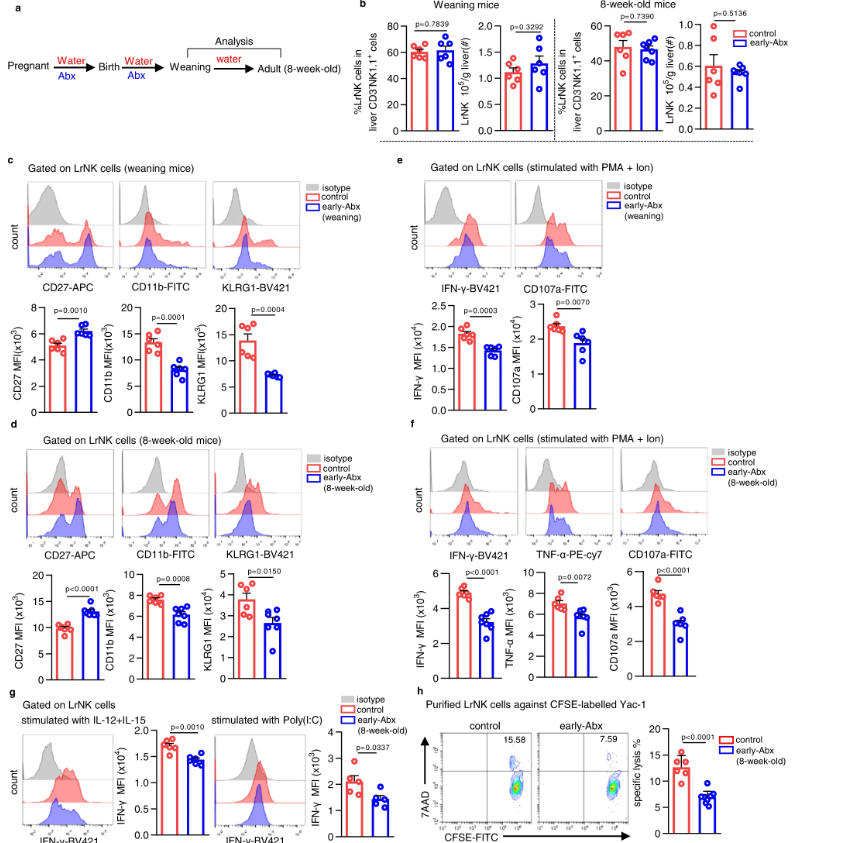💡 Liver-resident natural killer (LrNK) cells, a unique subset of lymphocytes, play crucial roles in immune surveillance and homeostasis within the liver. However, the mechanisms governing the maintenance of LrNK cell homeostasis, particularly during early life, remain poorly understood.
This study elucidates a novel regulatory network involving the gut-liver axis, emphasizing the impact of early-life gut microbiota on the functional maturation of LrNK cells. Early-life antibiotic treatment was found to impede the functional maturation and anti-tumor activity of LrNK cells in adulthood, while leaving conventional NK cells in the liver and spleen unaffected.
📍 Key Scientific Findings:
📌 Gut Microbiota Impact on LrNK Cells: Early-life antibiotic treatment leads to persistent maturation arrest of LrNK cells, emphasizing the critical role of early-life microbiota in the development of immune cells. Gut commensal dysbiosis is identified as a decisive factor in the inhibitory effect on LrNK cells, with co-housing treatments mitigating these effects.
📌 Microbial Metabolites and LrNK Maturation: Early antibiotic exposure significantly reduces butyrate levels in the liver, but not in the spleen.
Butyrate supplementation or administration of butyrate-producing symbiont 𝘊𝘭𝘰𝘴𝘵𝘳𝘪𝘥𝘪𝘶𝘮 𝘣𝘶𝘵𝘺𝘳𝘪𝘤𝘶𝘮 restores the impaired maturation and function of LrNK cells induced by early antibiotic treatment.
📌 Butyrate-Mediated IL-18 Production: Butyrate acts as a key mediator in LrNK cell maturation by promoting IL-18 production in hepatocytes and Kupffer cells through the GPR109A receptor. Deficiency in IL-18 leads to suppressed mitochondrial activity and functional maturation of LrNK cells.
📌 Role of IL-18 in LrNK Cell Maturation: IL-18 is essential for the functional maturation of LrNK cells, with IL-18Rα- LrNK cells displaying an immature phenotype and lower mitochondrial activity. Inhibition of mitochondrial oxidative phosphorylation neutralizes functional differences between IL-18Rα+ and IL-18Rα- LrNK cells.
📍 In conclusion, this study reveals a previously unexplored regulatory network between the gut microbiota and liver-resident NK cells, shedding light on the importance of early-life microbial colonization in immune system development. The identified role of butyrate in modulating IL-18 production and subsequent LrNK cell maturation provides potential intervention strategies for preserving immune homeostasis after early-life antibiotic exposure. This research contributes valuable insights into the intricate interplay between the microbiome and immune cells in the gut-liver axis.
Link to the article: http://tinyurl.com/3stret8w
